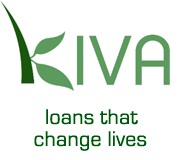Music has been taking a back seat for a very, very long time.
See, music doesn’t really pay the bills. Even if you “do it right”, you are in school and in young artist programs for a long time before you make very much money. For a gal who ran out of money to finish college and spent the ensuing years building businesses to make money to help her family keep the bills paid, of course music was going to take a back seat. Fifty bucks for a handful of rehearsals and a local concert doesn’t buy very many groceries.
The trick is to get innovative, but I admit I’ve been distracted. I have a lot of interests and passions and I’m pulled in a hell of a lot of different directions. People in college who thought I should pursue one thing were not big fans of me. Opera, art classes, musical theater. Not to mention the drawing and writing and business-building I did in my notebook while I was supposed to be paying attention. I was so enamored with my multitasking, I never got in my required courses (math, science, ha!). Not before the money ran dry, at least.
While I am passionate about music, music has taken a back seat because I am passionate about other things that do pay the bills. Those things have always had my first attention, not because they’re particularly more interesting than music (and not just because they make money) but because I liked them and it made sense at the time.
But I’ll tell you, music taking a back seat has always bothered the hell out of me.
“If I just had a little more money,” I’d say, and be frustrated, and stare dolefully at the expanse of red Schirmer opera scores on the bottom shelf. “Someday, huh?”
Someday!
Yeesh.
The part that (maybe) makes it complicated is that I’m not all that interested in giving up anything else. I will still gleefully run my business, Marty’s business, and help anyone who seems helpable. I’m still going to write and go media crazy (overdue for a videoblog, wouldn’t you say?). I’m still going to take on design projects. Because I love these things. They make me happy.
But music makes me happy, too.
Really, really happy.
There is nothing in the whole world like getting up in front of an appreciative audience and pouring out your soul. Nothing like spending weeks learning one annoying aria and finally hitting the sweet spot where you know all the words and all the notes and it just gels, it’s a part of you, it’s natural and has no taste, like saliva, it matches you perfectly and flows right through you. You’re it. It’s you.
When I see shows, I get jealous. I try to figure out what I did wrong that meant I wasn’t up there with them. I try to understand how this happened. But I know how it happened. The money wasn’t there.
John—my Welsh cousin and my voice teacher, too—tells me that he sees it happen a lot. People stop singing because they don’t have the money. Any music takes time and resources, but classical music takes more than most. Studying and rehearsing and performing all take a lot of time, especially if you’re driving two hours to your lessons the way I am (and back, oh god, the traffic from San Antonio to Austin!). Music costs money, of course. Lessons and rehearsals cost money. Let’s not even discuss concert gowns, or makeup, or, for that matter, traveling across the country to compete.
Right. Money.
So you can see how this all came about. I was working hard for money, and the money I made pretty much just barely covered my music study if I didn’t schedule lessons too often, or competitions almost ever. Taking more time off paying work in order to study more often wasn’t something I was going to do. There were still bills after moving to Austin and ditching my safety net. (Oh, who needs safety nets anyway?) So I drove down to see John and Kim (his lovely wife who plays brilliant piano!) once a month, maybe once every few months. Sometimes less. That was the way it was. It could change later, when more funds were available.
The problem is, “later” doesn’t cut it. “Later” never happens. Waiting for something nebulous to just occur is a lot like making peace with never getting it at all. Which is why I’ve had a bit of a plan up my sleeve.
You see, I left a lot of wonderful supportive music-lovers in Ohio. There were many lovely, lovely people in the Welsh community who looked after me and supported me and wanted to be kept in the loop. They wanted to see me succeed. Many of them came to support me when I had my fund raising concert in Pittsburgh, before I headed off to Wales for the first time. I’ve always been really bummed that moving to Austin meant leaving them behind, not just because their existence made me feel good (and boy, did it ever!) but because they were such kind people. They were the kind of people I wanted to stay connected to.
So a few months ago, I decided I could stay connected to them. I doubt you’ve missed my Social Connection Via Internet rants. Yes, that’s exactly where I’m going with this.
I’m setting up a site.
It’s going to be called Megan Makes Music. (Because she does. Even more now than ever!)
What Megan Makes Music is going to allow me to do is something I’ve been mulling over for a long time. The questions were these: How can I let my supporters support me the same way they would if we were local? How can they feel like a part of my progress? How can they keep track of my career? How can they feel how integral and special and important they are to me and to how far I’ve come already?
One big dilemma was how to let them feel involved when it’s impossible for them to travel 2200 miles to sit in on one of my lessons, for instance, or a rehearsal. But I think I’ve solved that problem, because by God, I have a video camera. And a (passable) internet connection. (Time Warner, do you realize they have eighty-billion megabyte net connections in Canada? WTF!?) And some very reasonable business know-how. And a hell of a lot of motivation.
So I’m going to build a membership site. And I’m going to let my supporters pay whatever they want to help me out on an ongoing basis, and I am going to start sending private blog entries and new audio recordings and even the occasional rehearsal video down the pike, so they can actually be involved. It won’t be perfect when we start, but we’ll refine it as we go—and it will mean regular, wonderful music under circumstances that greatly improve my ability to schedule regular lessons and rehearsals—and increase my chances of creating music-related income and getting me safely to Wales in 2010. We’re not aiming for second place this time, folks. We’re aiming higher.
And you can help me do it.
Right now, Megan Makes Music is one sign-up page for more information. I’m moving as quickly as I can to get everything figured out and running, so depending on the number of people who turn out to be interested, I may have it settled and ready to go in the next few weeks. I’m really, really hoping that everyone gets a lot out of it, and I’m very excited to have a good excuse to make music again. This is going to be really freaking fun. ;}
If it makes you as happy as it makes me, drop on by and let me know.
Thank you for listening, guys. :}
PS. I was not kidding about cool people talking about me on BBC Radio Wales yesterday morning. Here’s a link to the recording that looks like it will only be up until Monday October 12th—works great in Safari, not so great in Firefox. (Meh!) Alan Upshall is one of the nicest Welshmen I know, and he’s the one talking to Roy Noble on the air. Alan’s bit starts at 36-and-a-half minutes in and goes for about a half hour. If everything works out, there will be another BBC Radio Wales recording for you to listen to in the next week or two. ;}
Tagged as: Alan Upshall, BBC Radio Wales, fans, John Van Cura, Megan Makes Music, Music, opera, Roy Noble, singing, support




